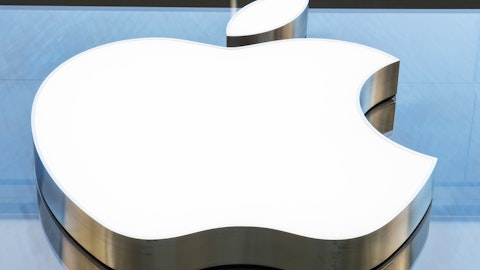Whether we like it or not, the car will soon be disrupted. Like the telephone before it, the car as we know it has potential to be transformed to become a new and better product and unlock hundreds of billions of dollars of wealth in the process. While the old car might run on gas and be driven by regular drivers, the car of the future will likely be automated, allow for ride sharing, and be potentially electric. Not only will the car of the future be more eco-friendly, but also it could be safer and drive itself. In terms of disruption, Silicon Valley has had a great track record. Companies like Apple have transformed the mobile phone into the smartphone and become near trillion dollar market cap companies along the way. Companies like Alphabet’s YouTube have transformed video viewing and in the future might challenge cable. Companies like Lyft have helped transform ride sharing. While Apple and Alphabet might be good at disruption, Detroit also has some great companies such as General Motors and Ford, all who have the existing market share, brand loyalty, and substantial resources. Given the vast rewards of making the ‘iPhone’ parallel of the next generation car, let’s analyze how the smart money is positioned among the five companies, Alphabet Inc (NASDAQ:GOOG), Apple Inc. (NASDAQ:AAPL), LYFT Inc (NASDAQ: LYFT) , General Motors Company (NYSE:GM), and Ford Motor Company (NYSE:F)
Our research has shown that hedge funds’ small-cap stock picks managed to beat the market by double digits annually between 1999 and 2016, but the margin of outperformance has been declining in recent years. Nevertheless, we were still able to identify in advance a select group of hedge fund holdings that outperformed the market by 32 percentage points since May 2014 through March 12, 2019 (see the details here). We were also able to identify in advance a select group of hedge fund holdings that underperformed the market by 10 percentage points annually between 2006 and 2017. Interestingly the margin of underperformance of these stocks has been increasing in recent years. Investors who are long the market and short these stocks would have returned more than 27% annually between 2015 and 2017. We have been tracking and sharing the list of these stocks since February 2017 in our quarterly newsletter.

While it could have made its own car and sold it, Alphabet Inc (NASDAQ:GOOG) seems to have taken the ‘platform strategy’ instead like what it has with Android. Alphabet’s division, Waymo, is regarded by many analysts as the leading self driving company in the world. Waymo has partnered with Jaguar Land Rover and Fiat Chrysler Automobiles to integrate self driving software for testing. As Waymo makes more progress, the company will presumably partner with more companies. Of the around 700-740 elite funds we track, 141 funds owned $12.83 billion of Alphabet Inc (NASDAQ:GOOG) on December 31, versus 130 funds and $13.71 billion respectively on September 30.
Apple Inc. (NASDAQ:AAPL) originally was rumored to be making its own iCar, but instead is now rumored to take Alphabet’s stratedgy and make software instead. Warren Buffett, a big Apple holder might be happy. Buffett has said before that in terms of cars, “I’d support whatever Tim Cook does, but I think it’d be a very poor idea to get in the auto business.” The auto business is notoriously competitive and there seems to be not enough first mover advantage versus other fields. Given how big Apple services is, Apple is good with making high margin software. 116 elite funds were long Apple Inc. (NASDAQ:AAPL) as of the most recent 13-F reporting period.
LYFT Inc (NASDAQ: LYFT) is changing the auto business by making it more renting when needed rather than owning. Given the many millions of Americans that use Lyft, the company could potentially one day faciliate a fleet of on demand self driving cars as needed whenever Americans need it. Given that it did its initial public offering recently, we don’t have all the hedge fund data on Lyft yet. George Soros’ Soros Fund bought shares from Carl Icahn’s fund before the IPO, however.
General Motors Company (NYSE:GM) and Ford Motor Company (NYSE:F) are both working on making the future car. GM with its GM cruise efforts along with other efforts. GM’s efforts have been rewarded somewhat as GM Cruise has been recently valued at $19 billion in a $1.15 billion funding round. Meanwhile, Ford has the goal of having a fully autonomous vehicle in commercial operation by 2021. If the company achieves that goal, it could potentially deliver good returns to existing investors.
Of the around 700-740 elite funds we track, 60 elite funds had a bullish position in General Motors Company (NYSE:GM) at the end of December. 33 funds owned $977.19 million of Ford Motor Company (NYSE:F) on December 31, versus 30 funds and $991.69 million respectively on September 30.
Disclosure:None



